Robert Q. Lewis est un Acteur Américain né le 25 avril 1920 à New York (Etats-Unis)

Robert Q. Lewis (April 25, 1920 – December 11, 1991) was an American radio and television personality, game show host, and actor. Lewis added the middle initial "Q." to his name accidentally on the air in 1942, when he responded to a reference to radio comedian F. Chase Taylor's character, Colonel Lemuel Q. Stoopnagle, by saying, "and this is Robert Q. Lewis." He subsequently decided to retain the initial, telling interviewers that it stood for "Quizzical."
Lewis is perhaps best known for his game show participation, having been the first host of The Name's the Same, and regularly appearing on other Goodson-Todman panel shows. He also hosted and appeared on a multitude of television shows of the 1940s through the 1970s. His most distinguishing feature was his horn-rimmed glasses, to the point that the title card for his second Robert Q. Lewis Show featured a pair of such glasses as a logo, and they were mentioned in the title of his lecture. As a frequent guest panelist on What's My Line?, Lewis's blindfold featured a sketched pair of glasses.
Radio
Lewis made his radio debut in 1931, at age 11, on a local radio show, "Dr. Posner's Kiddie Hour". He enrolled in the University of Michigan in 1938, where he was a member of the Phi Sigma Delta fraternity. He left to enlist in the U.S. Army in 1942 and became a radio operator in the Signal Corps.
After the war, he became an announcer and disc jockey. Among those who served as writers on Lewis's radio programs were playwright Neil Simon, author and dramatist Paddy Chayevsky, and radio comedy writer Goodman Ace, who headed a CBS team of comedy writers, including Simon, that acted largely as "script doctors" for existing shows in need of fixing. Ace was frustrated over CBS's revamp of the show he assembled for Lewis, The Little Show: "I give them a good, tight, fifteen-minute comedy show," Ace told Time, "and what do they do? Expand it to half an hour and throw in an orchestra and an audience. Who the hell said a comedy show had to be half an hour, Marconi? Ida Cantor?"
Future talk-show host and producer Merv Griffin often sang on Lewis's show. Lewis began appearing on television, but he continued on radio, first for the CBS and later as a disc jockey in Los Angeles. One of his radio series, Robert Q.'s Waxworks, was devoted to old records, setting the pattern that later radio personalities like Dr. Demento would follow.
His interview-based program was heard locally on KFI, Los Angeles, in 1972.
Television
Lewis was an early arrival on network television, presiding over more than one series at a time. The Robert Q. Lewis Show had a six-month run on CBS's Sunday night television lineup from July 16, 1950 to January 7, 1951. At the same time he also hosted CBS's TV talent-search variety program The Show Goes On from January 19, 1950 to February 16, 1952. He also had two daytime variety shows on CBS. The first, Robert Q's Matinee, was a 45-minute daily show, which lasted 14 weeks, from October 16, 1950 to January 19, 1951. The second, more successful The Robert Q. Lewis Show ran on CBS-TV from January 11, 1954 to May 25, 1956.
Lewis was often recruited to fill in for performers who were ill or otherwise unable to perform. He frequently sat in for Arthur Godfrey, who was considered his tutor. Lewis often credited Godfrey with giving him his first big breaks in show business. Jackie Gleason invited "Robert Q. Lewis and His Gang" to take over his American Scene Magazine time slot while he was away. These emergency replacements became part of Lewis's comic monologue; he'd tell of how he phoned his mother to watch him on CBS, only to hear her say, "Oh? Who's sick?"
Robert Q. became a fixture on television quiz shows in the 1950s and 1960s. In 1952, he settled into his most enduring game show role as host of ABC's The Name's the Same. In 1954, Lewis gave up the show to devote more time to his variety program; several times during his tenure, contestants appeared on the show bearing the name Robert Q. Lewis. In 1958, he hosted the short-lived original version of Make Me Laugh. In 1962, he substituted for and ultimately replaced Merv Griffin as host of Play Your Hunch. In 1964, he hosted the short-lived game show Get the Message on ABC.
Lewis was also a frequent participant on the panel show What's My Line?, making 40 appearances on the show. He first appeared as a panelist in 1951, about a year into the show's run. His most regular run on the show was alternating weeks with comedian Fred Allen following the departure of regular panelist Steve Allen, beginning in 1954 through early 1955; Fred Allen ultimately took the spot on the panel on a regular basis for approximately a year until his death. Lewis continued to make regular guest appearances on the panel right up to the show's final year in 1967. He also made one appearance as the show's "Mystery Guest" in 1955. He was also a guest panelist/player on a number of Goodson-Todman shows, including To Tell The Truth, Get The Message, Hollywood Squares, and both the original and 1970s versions of Match Game.
Records
Robert Q. Lewis was always an enthusiast of vintage music. He frequently revived old Tin Pan Alley tunes on his radio and TV shows, and in his very popular nightclub act. From the 1940s he sang for Columbia Records, MGM Records, and Coral Records. He scored his biggest hit in 1951 with the dialect novelty song, "Where's-a Your House?", an answer record to the Rosemary Clooney hit "Come On-a My House". In 1967, Lewis recorded I'm Just Wild About Vaudeville for Atco—this collection of circa-1930 songs has Lewis cleverly imitating different singing styles of the day.
Movies, TV, and theater
Lewis's fondness for show-business nostalgia was well known within the industry, and in 1949 he was hired to narrate the "lighter side" segment of the feature-length March of Time documentary film The Golden Twenties. He was too busy to pursue a movie career at the time because of his hectic radio, television, and nightclub schedule.
Later in his career, Lewis acted in a few movies, notably An Affair to Remember (1957), Good Neighbor Sam (1964), Ski Party (1965), Everything You Always Wanted to Know About Sex* (*But Were Afraid to Ask) (1972), How to Succeed in Business Without Really Trying (1967), and the TV movie The Law (1974), in which he played a dinner speaker at a lawyers' convention. He also performed on a number of television series, including Room for One More; The Hathaways; Branded; The Patty Duke Show; Ichabod and Me; Slattery's People; Grindl; Bewitched; Love, American Style; and Emergency!.
During the 1960s, Lewis became a familiar face on the live-theater circuit, starring in road-company versions of Broadway hits, including Bells Are Ringing and The Odd Couple. He continued to make sporadic acting appearances until a few years before his death.
Personal life
Lewis was a long-time smoker, and was frequently seen smoking cigarettes on the air in the early days of television. At that time smoking was not uncommon on panel shows. He died in 1991 at age 71 of emphysema, leaving no immediate survivors.
According to character actor/comedian Will Jordan, Lewis was gay.
A collection of Robert Q. Lewis's personal papers, notes, and scripts, covering roughly the years 1940 until 1960, now resides at Thousand Oaks Library in Thousand Oaks, California. He is interred at Mount Sinai Memorial Park Cemetery in Los Angeles, California.
Source : Wikidata
Robert Q. Lewis

- Infos
- Photos
- Meilleurs films
- Famille
- Personnages
- Récompenses
Nom de naissance Robert Goldberg
Nationalité Etats-Unis
Naissance 25 avril 1920 à New York (Etats-Unis)
Mort 11 décembre 1991 (à 71 ans) à New York (Etats-Unis)
Nationalité Etats-Unis
Naissance 25 avril 1920 à New York (Etats-Unis)
Mort 11 décembre 1991 (à 71 ans) à New York (Etats-Unis)
Robert Q. Lewis (April 25, 1920 – December 11, 1991) was an American radio and television personality, game show host, and actor. Lewis added the middle initial "Q." to his name accidentally on the air in 1942, when he responded to a reference to radio comedian F. Chase Taylor's character, Colonel Lemuel Q. Stoopnagle, by saying, "and this is Robert Q. Lewis." He subsequently decided to retain the initial, telling interviewers that it stood for "Quizzical."
Lewis is perhaps best known for his game show participation, having been the first host of The Name's the Same, and regularly appearing on other Goodson-Todman panel shows. He also hosted and appeared on a multitude of television shows of the 1940s through the 1970s. His most distinguishing feature was his horn-rimmed glasses, to the point that the title card for his second Robert Q. Lewis Show featured a pair of such glasses as a logo, and they were mentioned in the title of his lecture. As a frequent guest panelist on What's My Line?, Lewis's blindfold featured a sketched pair of glasses.
Biographie
Lewis was born Robert Goldberg in Manhattan to Jewish immigrants from Imperial Russia. At age ten he set up a microphone and record player at home and became the family's disc jockey.Radio
Lewis made his radio debut in 1931, at age 11, on a local radio show, "Dr. Posner's Kiddie Hour". He enrolled in the University of Michigan in 1938, where he was a member of the Phi Sigma Delta fraternity. He left to enlist in the U.S. Army in 1942 and became a radio operator in the Signal Corps.
After the war, he became an announcer and disc jockey. Among those who served as writers on Lewis's radio programs were playwright Neil Simon, author and dramatist Paddy Chayevsky, and radio comedy writer Goodman Ace, who headed a CBS team of comedy writers, including Simon, that acted largely as "script doctors" for existing shows in need of fixing. Ace was frustrated over CBS's revamp of the show he assembled for Lewis, The Little Show: "I give them a good, tight, fifteen-minute comedy show," Ace told Time, "and what do they do? Expand it to half an hour and throw in an orchestra and an audience. Who the hell said a comedy show had to be half an hour, Marconi? Ida Cantor?"
Future talk-show host and producer Merv Griffin often sang on Lewis's show. Lewis began appearing on television, but he continued on radio, first for the CBS and later as a disc jockey in Los Angeles. One of his radio series, Robert Q.'s Waxworks, was devoted to old records, setting the pattern that later radio personalities like Dr. Demento would follow.
His interview-based program was heard locally on KFI, Los Angeles, in 1972.
Television
Lewis was an early arrival on network television, presiding over more than one series at a time. The Robert Q. Lewis Show had a six-month run on CBS's Sunday night television lineup from July 16, 1950 to January 7, 1951. At the same time he also hosted CBS's TV talent-search variety program The Show Goes On from January 19, 1950 to February 16, 1952. He also had two daytime variety shows on CBS. The first, Robert Q's Matinee, was a 45-minute daily show, which lasted 14 weeks, from October 16, 1950 to January 19, 1951. The second, more successful The Robert Q. Lewis Show ran on CBS-TV from January 11, 1954 to May 25, 1956.
Lewis was often recruited to fill in for performers who were ill or otherwise unable to perform. He frequently sat in for Arthur Godfrey, who was considered his tutor. Lewis often credited Godfrey with giving him his first big breaks in show business. Jackie Gleason invited "Robert Q. Lewis and His Gang" to take over his American Scene Magazine time slot while he was away. These emergency replacements became part of Lewis's comic monologue; he'd tell of how he phoned his mother to watch him on CBS, only to hear her say, "Oh? Who's sick?"
Robert Q. became a fixture on television quiz shows in the 1950s and 1960s. In 1952, he settled into his most enduring game show role as host of ABC's The Name's the Same. In 1954, Lewis gave up the show to devote more time to his variety program; several times during his tenure, contestants appeared on the show bearing the name Robert Q. Lewis. In 1958, he hosted the short-lived original version of Make Me Laugh. In 1962, he substituted for and ultimately replaced Merv Griffin as host of Play Your Hunch. In 1964, he hosted the short-lived game show Get the Message on ABC.
Lewis was also a frequent participant on the panel show What's My Line?, making 40 appearances on the show. He first appeared as a panelist in 1951, about a year into the show's run. His most regular run on the show was alternating weeks with comedian Fred Allen following the departure of regular panelist Steve Allen, beginning in 1954 through early 1955; Fred Allen ultimately took the spot on the panel on a regular basis for approximately a year until his death. Lewis continued to make regular guest appearances on the panel right up to the show's final year in 1967. He also made one appearance as the show's "Mystery Guest" in 1955. He was also a guest panelist/player on a number of Goodson-Todman shows, including To Tell The Truth, Get The Message, Hollywood Squares, and both the original and 1970s versions of Match Game.
Records
Robert Q. Lewis was always an enthusiast of vintage music. He frequently revived old Tin Pan Alley tunes on his radio and TV shows, and in his very popular nightclub act. From the 1940s he sang for Columbia Records, MGM Records, and Coral Records. He scored his biggest hit in 1951 with the dialect novelty song, "Where's-a Your House?", an answer record to the Rosemary Clooney hit "Come On-a My House". In 1967, Lewis recorded I'm Just Wild About Vaudeville for Atco—this collection of circa-1930 songs has Lewis cleverly imitating different singing styles of the day.
Movies, TV, and theater
Lewis's fondness for show-business nostalgia was well known within the industry, and in 1949 he was hired to narrate the "lighter side" segment of the feature-length March of Time documentary film The Golden Twenties. He was too busy to pursue a movie career at the time because of his hectic radio, television, and nightclub schedule.
Later in his career, Lewis acted in a few movies, notably An Affair to Remember (1957), Good Neighbor Sam (1964), Ski Party (1965), Everything You Always Wanted to Know About Sex* (*But Were Afraid to Ask) (1972), How to Succeed in Business Without Really Trying (1967), and the TV movie The Law (1974), in which he played a dinner speaker at a lawyers' convention. He also performed on a number of television series, including Room for One More; The Hathaways; Branded; The Patty Duke Show; Ichabod and Me; Slattery's People; Grindl; Bewitched; Love, American Style; and Emergency!.
During the 1960s, Lewis became a familiar face on the live-theater circuit, starring in road-company versions of Broadway hits, including Bells Are Ringing and The Odd Couple. He continued to make sporadic acting appearances until a few years before his death.
Personal life
Lewis was a long-time smoker, and was frequently seen smoking cigarettes on the air in the early days of television. At that time smoking was not uncommon on panel shows. He died in 1991 at age 71 of emphysema, leaving no immediate survivors.
According to character actor/comedian Will Jordan, Lewis was gay.
A collection of Robert Q. Lewis's personal papers, notes, and scripts, covering roughly the years 1940 until 1960, now resides at Thousand Oaks Library in Thousand Oaks, California. He is interred at Mount Sinai Memorial Park Cemetery in Los Angeles, California.
Le plus souvent avec
Filmographie de Robert Q. Lewis (8 films)
Acteur
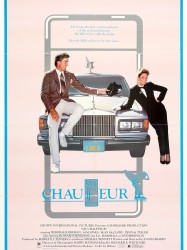
My Chauffeur (1986)
, 1h37Réalisé par David Beaird
Origine Etats-Unis
Genres Comédie, Romance
Thèmes Sexualité, Erotique
Acteurs Deborah Foreman, E. G. Marshall, Howard Hesseman, Julius Harris, Penn Jillette, Sam J. Jones
Note55%





Casey Meadows is a free-spirited young woman working as a dishwasher in an upscale restaurant. One day she receives a hand-delivered job offer as a driver for Brentwood Limousine Service. The company manager, McBride is appalled at Casey's young, brash presence... and the fact that she's a woman in an all-male establishment. McBride soon learns that Mr. Witherspoon, the company owner, personally handpicked her and offered the letter of employment. McBride reluctantly agrees to hire her, but warns her that she will be fired if she steps out of line.
 , 1h27
, 1h27Réalisé par Woody Allen
Origine Etats-Unis
Genres Comédie, Film à sketches
Thèmes Mise en scène d'un animal, Sexualité, Erotique
Acteurs Woody Allen, Louise Lasser, John Carradine, Tony Randall, Burt Reynolds, Lou Jacobi
Rôle Lui-même
Note66%





Des aphrodisiaques permettent à un fou du roi (Woody Allen) de trouver la clé qui lui ouvrira les portes du cœur de la reine (Lynn Redgrave), avant de s'apercevoir que la clé de sa ceinture de chasteté lui serait tout de même plus utile.
 , 2h1
, 2h1Réalisé par David Swift
Origine Etats-Unis
Genres Comédie, Comédie romantique, Musical, Romance
Thèmes Théâtre, Musique, Adaptation d'une pièce de théâtre, Adaptation d'une comédie musicale
Acteurs Robert Morse, Michele Lee, Rudy Vallée, Anthony 'Scooter' Teague, Maureen Arthur, Ruth Kobart
Rôle Tackaberry
Note71%





Un ambitieux laveur de carreaux décide, après avoir lu un livre sur "comment réussir dans les affaires", décide de changer de carrière et d'appliquer les différentes méthodes du guide.
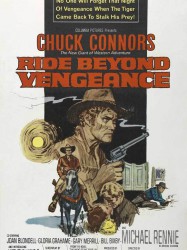
Marqué Au Fer Rouge (1966)
Réalisé par Bernard McEveety
Genres Action, Western
Acteurs Chuck Connors, Michael Rennie, Kathryn Hays, Joan Blondell, Gloria Grahame, Bill Bixby
Rôle The Hotel Clerk
Note61%





1884, Après 11 ans de dur labeur, Jonathan Trapp revient à Coldiron y retrouver sa femme. Il est attaqué par trois hommes qui le prennent pour un voleur de bétail, le marquent au fer rouge et lui volent ses économies.
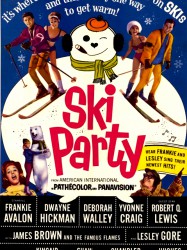
Ski Party (1965)
, 1h30Réalisé par Alan Rafkin
Origine Etats-Unis
Genres Comédie, Musical
Thèmes Sport, Musique
Acteurs Frankie Avalon, Yvonne Craig, Annette Funicello, Dwayne Hickman, Aron Kincaid, Dick Miller
Rôle Mr. Pevney
Note52%





Todd Armstrong (Avalon) and Craig Gamble (Hickman) are California college undergraduates who unsuccessfully date co-eds Linda Hughes (Deborah Walley) and Barbara Norris (Yvonne Craig). Arrogant, handsome, athletic classmate Freddie (Aron Kincaid) has no such problems and chooses not to fight off all the women chasing after him. As president of the Ski Club, Freddie organizes a midterm vacation trip to ski country (in gorgeous Sawtooth National Forest) in Idaho. Although they know nothing about skiing, Todd and Craig follow Linda and Barbara on this bus trip, to try to learn "the secret of Freddie's technique".

Prête-moi ton mari (1964)
, 2h10Réalisé par David Swift
Origine Etats-Unis
Genres Comédie
Acteurs Jack Lemmon, Romy Schneider, Dorothy Provine, Mike Connors, Edward G. Robinson, Edward Andrews
Rôle Earl, neighbor
Note67%





Sam Bissell, un publicitaire, est choisi par un important client, séduit par sa vie tranquille et respectable, pour vanter au public les bienfaits d'une marque de produits laitiers. En rentrant dans sa villa des environs de Los Angeles, il trouve Min, sa femme, en compagnie de Janet, une amie d'enfance. Cette dernière, qui arrive tout droit d'Europe, est aux États-Unis afin de régler les derniers détails qui vont lui permettre de toucher un important héritage. Mais, pour empocher le pactole, Janet doit prouver qu'elle vit avec son mari, Howard. Or, tous deux sont séparés depuis plusieurs mois. Des cousins, venus inopinément vérifier que cette clause du contrat est bien respectée, tombent sur Sam, qu'ils prennent pour le mari de Janet. Personne ne s'avise de les détromper.
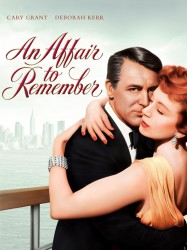
Elle et lui (1957)
, 1h59Réalisé par Leo McCarey
Origine Etats-Unis
Genres Drame, Comédie romantique, Romance
Thèmes Le handicap, Films pour enfants
Acteurs Cary Grant, Deborah Kerr, Richard Denning, Cathleen Nesbitt, Fortunio Bonanova, Robert Q. Lewis
Rôle Himself (TV Presenter/Interviewer)
Note73%





Terry McKay, jouée par Deborah Kerr, est une ravissante chanteuse de cabaret. Au cours d'une traversée sur un paquebot, elle rencontre Nickie Ferrante (Cary Grant), coureur de jupon renommé, d'origine italienne. Ils tombent irrésistiblement amoureux, mais sont chacun déjà fiancés. Ils décident que si leur amour est réel et fort, il survivra à 6 mois de séparation. Mais un accident empêche Terry de se rendre au rendez-vous.
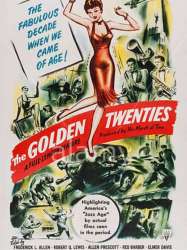
The Golden Twenties (1950)
, 1h8Origine Etats-Unis
Genres Documentaire
Acteurs Charlie Chaplin, Rudolph Valentino, Robert Q. Lewis, John Barrymore, Vilma Bánky, Irving Berlin
Note65%





 Connexion
Connexion


